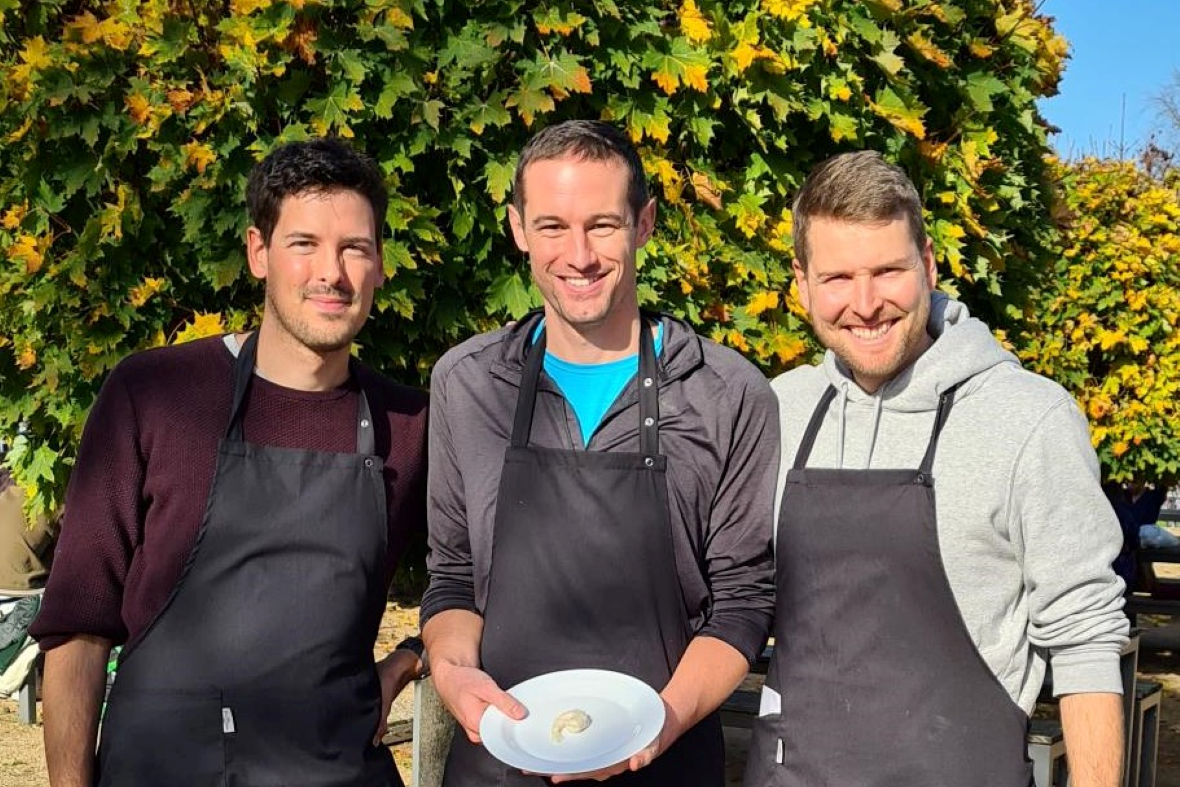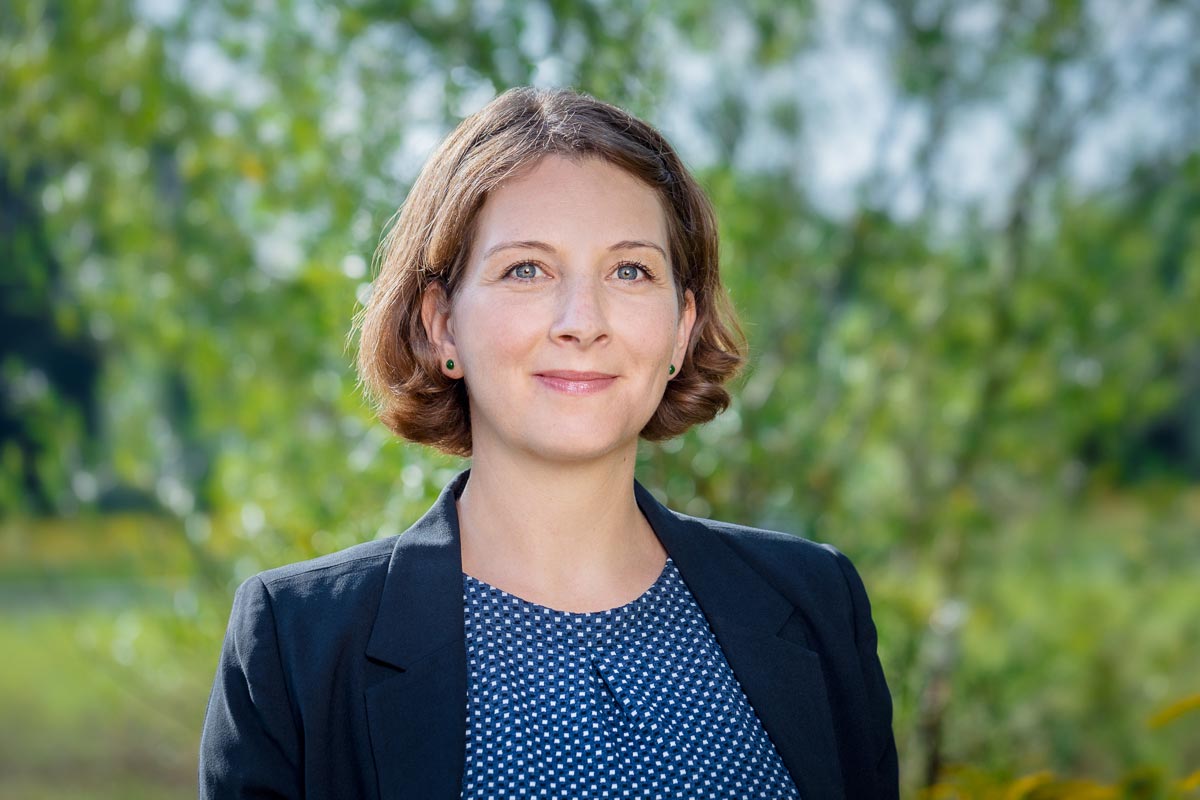
3 questions with Ordinary Seafood: »In the market for fish and seafood alternatives, we’re breaking completely new ground«
The way we hunt our seafood and farm our fish is harmful to animals, their natural habitats and our health. Ordinary Seafood has set out to develop vegan alternatives, that feel and taste exactly like the original. In our interview, founder and CEO Dr. Anton Pluschke and Head of R&D Dr. Fabian Machens share their start-up story, why Potsdam Science Park is the perfect location them – and the peculiarities of creating the perfect fake shrimp.
Dr. Pluschke, Dr. Machens, in your start-up Ordinary Seafood, you develop vegan alternatives to salmon, tuna and shrimp. What’s your story?
Dr. Anton Pluschke: I come from Australia. Before founding Ordinary Seafood, I studied food technology and biotechnology. In my home country, I saw first hand what industrial fishing and climate change are doing to our oceans. It did not take me long to understand that the way we hunt our seafood and farm our fish not only harms animals and their natural habitats, but also us, as humans. For example, the fishing of shrimp with the help of trawlers is often detrimental to marine seabeds and their respective ecosystems. Fish, on the other hand, are often negatively affected by antibiotics or heavy metals, such as mercury. So, I had been thinking about the possibilities of developing alternatives for quite some time. And I gained a lot of experience with alternative proteins during my time as Head of R&D at the Berlin start up vly.
Dr. Fabian Machens: Then, in early 2022, Anton was looking for partners to bring his idea of animal free seafood to life. He intended to establish a start-up that offers just such vegan alternatives, and he was looking for an additional scientist with expertise in molecular biology on board. I was really intrigued by his suggestion and was also looking for new opportunities to create an immediate positive impact on society with my research, outside of academia. The mission got me thoroughly excited, so, I joined. Together, we applied for an EXIST Business Start-Up Grant – and we got it! I became Ordinary Seafood’s first employee, and the rest is history (laughs).
What are the challenges and peculiarities of creating vegan fish and seafood?
Dr. Fabian Machens: That would definitely be to achieve the right taste and texture. In this regard, imitating fish is somewhat more difficult than imitating beef or pork meat. Think of salmon, for example: It is not simply a uniform piece of meat, but consists of several layers of fat and protein, that are characteristically easy to cut up once the fish is fried. To recreate this effect is not easy. Even more so, seafood often possesses a very unique combination of taste and texture. To produce a high-quality alternative for shrimp will remain an ongoing challenge for us, and one that we’re looking forward to. While we are thrilled with what we have created so far, we can’t wait to implement our latest innovations that we know are going to further improve our products.
Dr. Anton Pluschke: Additionally, we also aim to create alternatives that not only come close to real fish and seafood in terms of taste and texture, but also in regard to their nutritional qualities. For example, some other products on the market come close to the look, feel and taste of salmon and tuna, but they offer very little protein, which is a macronutrient that people do expect when eating seafood. To achieve this, we do not only rely on classical food technology techniques but are also experimenting with molecular biological methods. This approach has some precedent in the market for vegan milk alternatives. However, in the market for fish and seafood alternatives, we’re breaking completely new ground.
You have set up your main office in the GO:IN in the Potsdam Science Park. What advantages does the park offer you that influenced your decision?
Dr. Anton Pluschke: In the end, it was the specific combination of advantages that the Potsdam Science Park had to offer to us. It was just a perfect fit. In the park, we can continue our close ties with the university of Potsdam, the molecular biology laboratories of which we still use for the creation of our future recipes. And the offer for our office and foodtech lab that the GO:IN made us was also very fair. Being in the Science Park also allows us to grow our connections with top research institutes like the Fraunhofer-Gesellschaft and the Max Planck Institutes.
Dr. Fabian Machens: Besides, the park obviously is a very attractive location for a science-based start-up like us. Where else can we be this close to leading research institutes, a vibrant start-up culture, and also offer potential future employees both the solitude of Potsdam-Golm as well the flair of Berlin close by?
Dr. Pluschke, Dr. Machens, thank you for the interview.
This blog and the projects carried out by Standortmanagement Golm GmbH at Potsdam Science Park are funded by the European Regional Development Fund (ERDF) and the Federal State of Brandenburg.
Contact

Julia Hinz
Site marketing
julia.hinz@potsdam-sciencepark.de + 49 331 237 351 109